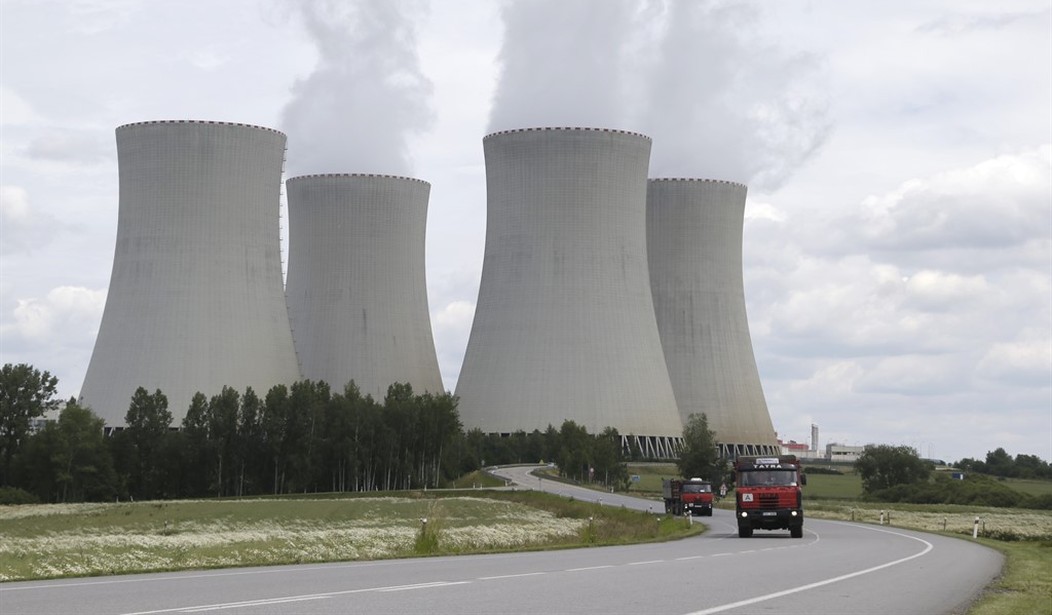As John recently reported, Germany has continued to engage in a tug-of-war over the fate of the country’s three remaining operational nuclear power plants and three others that were already decommissioned but could be brought back online if needed. The green energy activists who currently dominate most of Germany’s ruling political parties want to get rid of fossil fuels immediately, but they also want to fully eliminate nuclear power. It’s an odd choice, since nuclear power plants don’t produce a carbon footprint, but there’s no arguing with some people I suppose. And yet, with natural gas supplies from Russia becoming increasingly erratic and wind and solar power not providing anywhere near enough energy to meet the country’s needs, it is slowly dawning on Germany’s leadership that they can’t lose the 6% of their electrical output provided by the nuclear plants without the lights going out. This led German Chancellor Olaf Scholz to indicate this week that the door is open to a compromise that would keep the plants in operation for a while longer. But political compromises require some negotiations and some give and take. So what sort of deal is in the offing? The latest “horse trading” offer is summed up this weekend in the Wall Street Journal and it’s one of the more nonsensical ones imaginable
This is what passes for an energy-security debate in Berlin these days. Politicians and some pronuclear media outlets are floating the idea of a grand horse trade (Kuhhandel, or “cow trade” in German) that would see the lives of the country’s three remaining nuclear reactors extended after all, in exchange for introducing a highway speed limit to save gasoline and diesel.
Like many political compromises, this would leave everyone unhappy. The free-market Free Democratic Party, part of the ruling coalition, and the opposition Christian Democrats enthuse over nuclear power but hate a speed limit. The eco-left Green Party, also part of the coalition, hates nuclear but loves the speed limit. Chancellor Olaf Scholz’s Social Democrats, nominally the ruling party, can’t decide what they think about either.
This is no way to protect energy security in Europe’s largest economy. It’s clear on the merits that Germany can’t afford to scrap its remaining nuclear power plants, which provide about 6% of its electricity. Europe is facing a severe gas shortage thanks to Vladimir Putin’s energy blackmail, and coal and nuclear are the only alternatives to increasingly unreliable Russian supplies of natural gas.
So we have one leftist German political coalition that is in favor of nuclear power but is opposed to having a speed limit on the Autobahn. Another leftist party hates nuclear power but wants to see a speed limit imposed to reduce gasoline usage and emissions. So it’s looking as if they will keep the plants open, but put speed limits on the highways, effectively making sure that nobody is happy when the deal goes into effect.
As long as the compromise keeps the nuclear plants in operation, it will still be at least a temporary victory. Other countries are watching these deliberations closely. That’s because the energy grid and the European system of natural gas and oil pipelines are complex and cross many national boundaries. If Germany’s portion of the grid begins to stagger badly, the lifelines of its neighbors can be brought down as well.
At one point recently, the situation was bad enough that Poland offered to send people in and take over the operation of the nuclear plants from Germany just to ensure that the juice kept flowing. The Germans rejected that generous offer (that would have saved them considerable amounts of money) because it would have still left functional nuclear plants inside of their borders.
We are facing our own energy crisis in the United States and it’s not far over the horizon. Our politicians need to be watching what’s going on in Europe right now because the same thing will be happening here either this summer or, at the latest, next winter if there’s a serious cold snap. The Germans are not producing enough electricity and their access to reliable natural gas supplies has been crippled. They have already instituted rolling blackout a few times and there are more on the way. And just as all of that is happening, they are seriously discussing cutting off six percent of their power to keep the environmental lobby happy.
There was a time when I would have been laughing at them. But we’re seeing nearly equally stupid policies in the United States and the same blind refusal to take any serious steps to ward off a worst-case scenario. You can not force the lights to stay on or power to come out of the outlet by passing a law or issuing an executive order. The power grid is complicated and ours needs many upgrades and more power plants feeding it. Electricity doesn’t appear by magic. Germany and other nations are learning that already. We’ll be learning it soon also.








